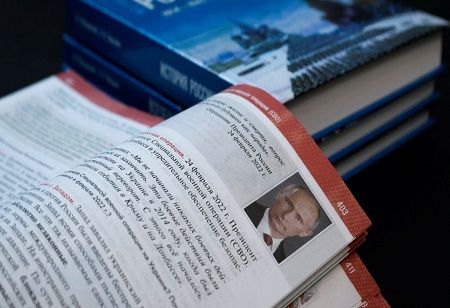- Russia Plans Special Russian Textbooks for Migrant Children to Bridge Language Gap in Classrooms
- Shortage of Teaching Aids and Language Barriers Prompt Russia to Launch Russian-Learning Support for Migrant Students
- Compulsory Language Tests Reveal Gaps; Government Introduces Free Prep Courses, New Teacher Training Program
The government intends to introduce specialized Russian language textbook, designed specifically for children of migrant families. The proposal was discussed at a roundtable hosted by the Federation Council's Committee on Science, Education, and Culture, Parlamentskaya Gazeta reports.
The head of the Committee Lilia Gumerova is said to have supported the proposal and stressed the need for developing and disseminating the materials on a national scale.
"This should be seen not as an expense, but as an investment in quality education", Gumerova said. "We are looking forward to the release of textbooks for migrant children".
The conversation focused on the difficulties of the children of labor migrants within Russian classrooms. Teachers from many regions informed that within certain classes, as many as half of the students are having trouble with the Russian language, which greatly impedes their capacity to understand the curriculum.
The most serious problem raised was the shortage of teaching aids for Russian as a foreign language, which puts teachers at a loss for how to teach these pupils. Larisa Zver'kova, director of the Association of School Principals in Tver, emphasized that the absence of appropriate textbooks aggravates the situation.
Most migrant children have not been able to pass the compulsory Russian language test necessary for entry to school. Officials gave a reason that insufficient documents largely because parents knew little Russian was a major reason. From the Ministry of Education, out of those permitted to sit for the test, only two-thirds of them passed.
But measures of support for children who do not pass the test have been adopted by the government, such as free preparatory language courses. Foreign children's teachers must also receive special training to improve their qualifications.
Specialists pointed to a larger problem: a lack of Russian language teaching professionals and an emerging generational divide between seasoned teachers and younger Russian philology experts in CIS nations. Director of the Tashkent branch of Herzen Pedagogical University Sergey Barchenko explained that, although elderly generations in large Uzbek cities retain a minimum level of knowledge of Russian, the proficiency of Russian in rural regions is much lower.
Sergey Volkov, the interim rector of the Kyrgyz-Russian Slavic University, stated that only 274 of almost 2,400 schools in Kyrgyzstan provide Russian-language education, even though Russian is an official language of the state. Those schools tend to be overcrowded, and half of their instructors are at or near retirement age.
On April 1, 2025, Russia implemented compulsory Russian language tests for foreign kids enrolling in school. In April, the Ministry of Education got 1,762 requests, but just 335 families were able to provide all the documents. Out of those tested, only 60–70% of the children passed the test, as reported by Deputy Education Minister Olga Koludarova.
"We are not giving up on these children", Koludarova added. "We are presenting three-month courses either in schools or as additional classes. A list of the schools participating will be released shortly".
Moreover, the Ministry of Education is also going to introduce this summer a new teachers' training program for teachers working with migrant children.
Russian, according to the Russian Language Pushkin Institute, is spoken by about 255 million individuals worldwide and ranks as the ninth most spoken language in the world.

